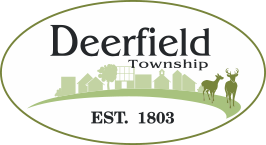Government
Capital Improvement and Repair Projects
Understanding the nature and cause of stormwater issues helps to determine the entity who may undertake necessary improvements. Each stormwater problem is unique because the water does not conveniently stay within certain borders or jurisdictions. Problems may also have complicated causes or solutions which require intergovernmental cooperation.
Generally speaking, projects in the public road right-of-way may be handled by either the Stormwater District or Deerfield Township. Currently, Deerfield Township is taking the lead on these types of projects. However, in certain cases, the District and Township will partner to jointly address those projects which also extend outside the right-of-way.
The District has established a set of Criteria for Assistance in its Regulations which outlines the types of projects eligible for District assistance. Generally speaking, those criteria permit the repair or construction of facilities which are either in a public-use easement or which carry public stormwater or to address unreasonable amounts of public stormwater which enters onto private property. The District will not expend funds to correct problems caused by one private property owner’s stormwater flooding a neighboring private property. The District will also not stabilize stream banks unless it is necessary to significantly address water quality or to address flooding or where unreasonable stream bank erosion is adjacent to and caused by discharge from a public storm water improvement.
Stormwater Fee
The District is completely funded through a small fee on all properties in the District with impervious surface. Impervious surface, such as pavement and buildings, does not allow stormwater to enter the ground. Water runs off the impervious surface and must be properly collected and disposed or flooding issues may result. Tax revenue is neither collected by nor used by the District. The District’s fee is used to investigate stormwater issues and, in some cases, to repair or construct stormwater facilities. The fee is also used to meet various unfunded mandates included in EPA Phase II requirements. Most local jurisdictions with urban densities have had to levy a similar fee to address their stormwater utility issues and to comply with those EPA requirements. In 2005 the District appointed an advisory group composed of a cross section of area residents and non-residential representatives to identify the needs of the Township and determine how quickly projects should be completed. This group recommended a fairly aggressive capital improvement program. The District studied these recommendations, evaluated proposed projects and costs, and met with Deerfield Township to finalize the scope of District activities and arrive at a reasonable fee which address the most pressing needs. With this information in mind, the District Board voted on August 8, 2006 to adopt a stormwater fee of $1.92 per month per ERU. The fee began appearing on the Warren County Water and Sewer bills in November, 2006. Those property owners who do not receive their water through Warren County receive a "stormwater only" bill once per year for the annual amount. This invoice is usually sent in February, from the Warren County Water and Sewer Department. New stormwater issues and potential projects are continuously being brought to the District's attention and they are evaluated by the District Board at their monthly meetings. As projects meet the necessary criterion for assistance, the District ranks them and performs those projects in order of ranking, as funding allows. Likewise, the federal mandates put in place will remain ongoing for an unspecified period of time. There are several program activities that take place in order to comply with the required mandates. These activities include Public Education & Outreach, Public Involvement, Illicit Discharge Detection and Elimination, Construction Site Stormwater Runoff Control, Post Construction, and Pollution Prevention for Municipal Operations. Each of these program activities are monitored, reported, and inspected by the OEPA to ensure compliance with the mandates.
What is an ERU?
The District’s stormwater fee is determined by the amount of impervious surface (rooftops, driveways, sidewalks, parking lots) on each property. A sampling of township residential property was measured for impervious surface which was then averaged. This average came to 3,407 square feet and is considered one ERU (Equivalent Residential Unit). Each single family home property owner pays a flat fee (currently $1.92 per month) based on one ERU per property. The District fee for non-residential property depends on the amount of impervious surface on the property. The amount of impervious surface on such properties is measured and the total is divided by the average residential surface area (3407 sq. ft.), resulting in an assigned ERU value for each property. Thus a non-residential property could contain only one ERU or many ERUs. The $1.92 fee is multiplied by the number of ERUs to determine that property's monthly fee. Non-residential properties include, but are not limited to, commercial centers, industrial complexes, religious buildings such as churches and temples, schools, and government offices. Nearly all local governments calculate their stormwater fees in the same manner.
RFA
Do I meet the criteria? Read Policy Section 403
If you meet the criteria in the link above fill out the RFA (Request for Assistance)
***IF YOU ARE UNABLE TO FILL OUT THE RFA FORM PLEASE EMAIL JEFF THOMAS or call 513.770.2387
